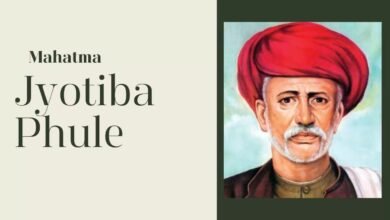India’s Constitution: A 75-year Journey of triumphs and trials
By Doruvu Paul Jagan Babu: Assistant Chief Editor

India’s Constitution, adopted on January 26, 1950, has stood as a cornerstone of democracy, guaranteeing justice, equality, and liberty to every citizen. It represents the collective aspiration of a diverse nation, binding 1.4 billion people under the ideals of secularism, socialism, and sovereignty. For over seven decades, the Constitution has been a bulwark against tyranny and a guiding light for governance, enduring challenges and upheavals.
A legacy of inclusion and empowerment
The Indian Constitution has significantly impacted the lives of marginalized communities by introducing policies aimed at social justice. Landmark measures like reservations for Scheduled Castes (SC), Scheduled Tribes (ST), and Other Backward Classes (OBC) in education and employment have transformed lives. Acts like the Right to Education, Right to Information, and MGNREGA are testament to its progressive vision.
Political thinker Ram Madhav aptly described the Constitution as the “heart of democracy,” emphasizing its central role in shaping India’s democratic ethos. Similarly, Dr. B R Ambedkar famously warned, “However good a Constitution may be, if those who are implementing it are not good, it will prove to be bad.”

Threats to Constitutional values
Over the years, concerns have arisen about the weakening implementation of the Constitution. As DVS Verma observed in Visalandhra, the working class must step up to protect constitutional values. Civil rights suppression, attacks on federalism, and the erosion of welfare policies have drawn sharp criticism. For instance, MLC KS Laxman Rao, in Prajashakti, cautioned against the dangers to secularism, highlighting rising communal polarization.
Several political parties have also alleged that the Constitution is being sidelined. They argue that recent legislative actions and executive decisions have undermined federal structures and citizens’ rights. For example, the dilution of Article 370 and the enactment of the Citizenship Amendment Act sparked debates about inclusiveness and secularism.
Bright and dark sides of implementation
The Constitution has delivered numerous successes, such as conducting free and fair elections, safeguarding fundamental rights, and fostering a vibrant judiciary. However, its implementation has often been marred by political interference, corruption, and inefficiencies. Instances of suppressing dissent, misuse of laws like sedition, and curbing press freedom reflect the darker side.
Legal luminary Fali S Nariman once remarked, “The Constitution is a wonderful document, but its efficacy depends on the moral values of those who operate it.” This highlights the growing gap between constitutional ideals and governance practices.

A vision for the future
As India celebrates its 75th Republic Day, it is time to reflect on how the Constitution can pave the way for sustainable and inclusive development. Policymakers must prioritize:
Strengthening federalism: Empowering states to make independent decisions while fostering cooperation with the Centre.
Protecting civil liberties: Safeguarding freedom of speech, press, and assembly from undue restrictions.
Upholding secularism: Ensuring religious harmony and curbing communal divisiveness.
Enhancing accountability: Promoting transparency in governance and judiciary reforms.
The Constitution must remain a living document, adapting to evolving challenges while preserving its core values. As DVS Verma aptly stated, “The working class, from all walks of life, must unite to safeguard the Constitution.”
A collective responsibility
The Indian Constitution is a testament to the resilience of democracy, but its strength lies in collective adherence to its principles. The responsibility to uphold its values rests not only on leaders but also on citizens. As India steps into the future, let the Republic Day serve as a reminder that safeguarding the Constitution is essential for ensuring justice, equality, and liberty for generations to come.









